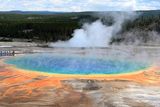Now Reading: Ancient Earth’s Chemistry May Hold Clues to Life’s Origins
-
01
Ancient Earth’s Chemistry May Hold Clues to Life’s Origins
Ancient Earth’s Chemistry May Hold Clues to Life’s Origins

Quick Summary
- A study published in Nature has made progress in understanding the origin of protein synthesis during EarthS early history, approximately 4 billion years ago.
- Researchers recreated chemical reactions between amino acids and RNA in water, demonstrating how these two ingredients of life may have initiated protein synthesis.
- Amino acids are essential for building proteins that support cellular functions, while RNA provides the instructions for linking amino acids into chains.
- Using thioester compounds derived from Coenzyme A,researchers facilitated reactions needed to connect amino acids to RNA under conditions similar to primordial Earth-such as small pools or lakes (but not oceans due to dilution).
- This breakthrough highlights thioesters as a potential key energy source for early life and fills a critical gap in understanding life’s first biochemical processes.
- Future steps will explore stages like ribosome progress and full-fledged protein formation after RNA-amino acid bonding.
indian opinion Analysis
The findings shed light on one of humanity’s fundamental questions-the origins of biological life-and contribute significant evidence toward unraveling this complex process. For India-a nation heavily invested in biosciences and scientific research-the study emphasizes the importance of advancing interdisciplinary fields such as chemistry, biology, and biochemistry for global breakthroughs.
Moreover, India’s growing space exploration initiatives (e.g., Chandrayaan) align well with investigating extraterrestrial sources of life’s building blocks; this research indirectly complements such efforts by exploring Earth’s primordial history through chemistry-based methods. by fostering collaborations within cutting-edge domains like synthetic biology or astrobiology globally, indian scientists could play a role in solving these worldwide mysteries while inspiring future generations towards inquiry-driven science.

























